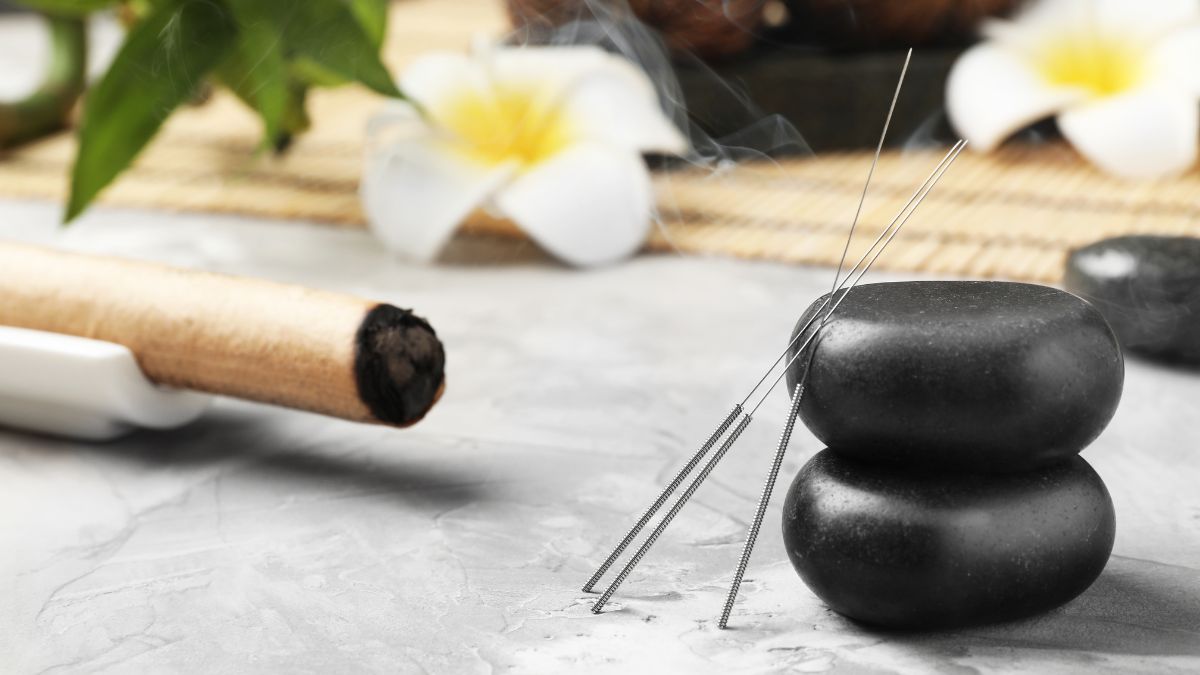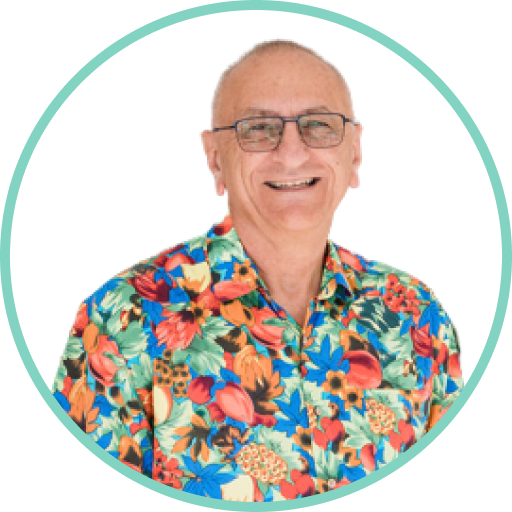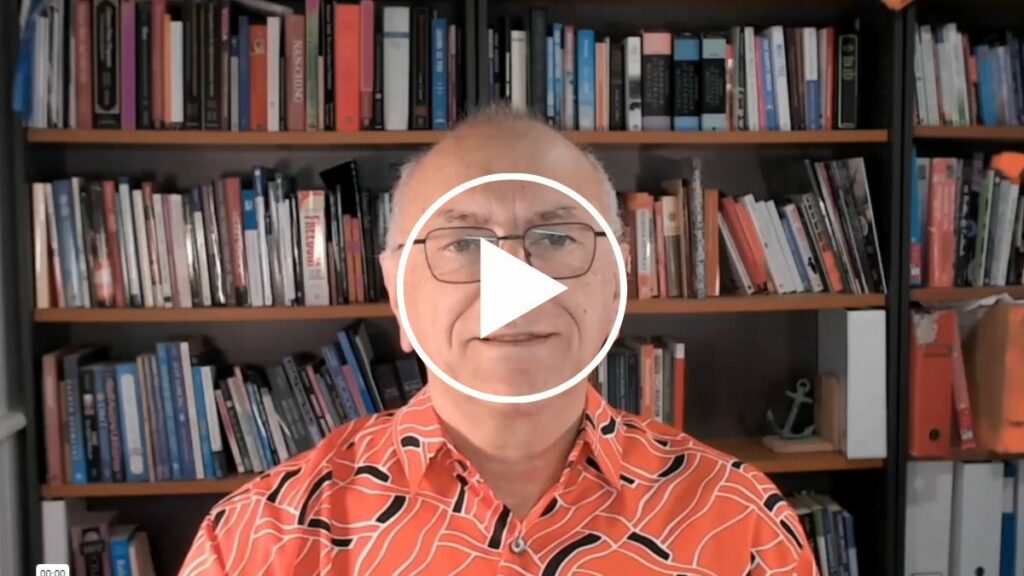Last December, Sue graciously invited me to join her podcast as a guest speaker, where I had the opportunity to discuss the exceptional advantages of Transformational Acupuncture. I was thrilled to share my wealth of insights, not only to encourage potential patients to explore this game-changing approach but also to extend an invitation to acupuncturists worldwide to learn this methodology.
Blossom Your Awesome is a podcast that centers around self-improvement, personal development, and mental wellness. They invite experts, authors, teachers, trainers, doctors, and healers to offer their wisdom, insights, practical guidance, tips, love, and laughter.
You can listen to the podcast episode here or read on for some of my favourite highlights.
Disclaimer: I apologize in advance for any potential inaccuracies in the transcriptions. Please be aware that this has been generated using AI.
What Makes Acupuncture Different From Other Treatment Methods for Depression and Anxiety?
Sue: So people talk to us about depression. So it seems like a lot of times, the kind of [our] first go-to is some sort of medication, right?
Dr. Alex: Yeah, unfortunately. I mean, generally, if people go to a doctor, they’re offered antidepressants, maybe not on the first visit. But if you go there often enough, and especially female patients crying in front of male GPs, you can almost guarantee they’re going to get a prescription for an antidepressant. Because guys like to fix problems, so to speak.
The only other alternative really is talk therapy, just sitting down with a psychologist. I’ve had a lot of people over the years who say, “I’m sick and tired of talking to the psychologist. I go to a new one, and then I’ve got to go through all my story again about my childhood and bad parenting or whatever happened.” There’s usually a story there, but every time they keep telling that story, it seems to like reinforce the story, the victimhood thing.
With the beauty of acupuncturists, you don’t have to talk about any of that. You just lie there and accept the treatment, and it works on the mind, on the subconscious. Often, conscious thoughts come to people while they’re even lying there. Plus the other aspect is releasing emotion. I think, particularly in the case of depression, people tend they’re taught to suppress emotions. People generally don’t rant and rave and scream and shout; they just soldier on, and that’s the way they were brought up, and these things, I think they, get stuck in the body. Often, I [did] acupuncture at a particular point, and the person will burst out crying in tears and it’s usually associated with some sort of memory of something in the past, but sometimes it’s not even associated with the memory. It’s just the energy of the emotion is stuck in the channels.
Because they in Chinese medicine, one of the beauties of it is they associate different emotions with different organs in the body. If the person’s a frustrated, angry type of person, it’s usually a liver issue. If there’s a lot of sadness in their life, it usually affects the lungs. So, lung issues. So you can gauge what treatments they need from the emotions they have and so on.
So it opens up a whole new vista. For me, being that sort of scientific-minded person, initially, I thought, “Oh, this is all rubbish.” But you try it, and it works and I find it captivating that way.
What Makes Transformational Acupuncture Unique?
Sue: Now I know you have kind of a different methodology. So, what are you doing [differently?] How did you come up with this?
Dr Alex: Yeah. Well, initially, it was a system of acupuncture based on affecting the chakras because there’s a Dr. Mikio Sankey who realized, well, chakras, the ayurvedic system of energy sensors from the crown, they head down to the root chakra. They’re really acupuncture points.
It’s the same thing by a different name. It’s just you’re looking at it from a different perspective. So, you can actually use acupuncture to manipulate chakra energy. I guess she, Dr. Sankey, was using it from the perspective of helping people raise their consciousness and they usually needed to be high-level meditator-type people, very introspective and working hard on themselves. But me being a GP, I just thought I’d apply this to ordinary, everyday people and lo and behold, I was finding it was working. Initially, the system he was teaching was too powerful for people with depression because it would stir up emotional stuff too much and be very confronting for the patient.
So I really sort of, over time, developed it into a gentler, milder system that’s graded to take people through it as they emotionally can handle these things. So, there’s always the next level, if you like.
What Is Something That Would Surprise Us That Acupuncture Can Cure or Heal?
Sue: What are some other myths about acupuncture, or what is something that would surprise us that acupuncture can cure or heal that we would never imagine?
Dr Alex: Yeah, well, because the thing is, I guess, is, especially when you understand chakras, there’s a real connection between the mind, body and spirit. I found out before, okay, you get people to get admitted to hospital for all sorts of medical illnesses, but when you actually talk to the patient in a sort of casual type setting and discuss their attitude about their illness. They usually have some reason in the back of their mind as to why they got the illness and it often relates to events in life and or spirituality and so forth. It’s really quite fascinating because medicine only just treats physical illness. I mean, the classic thing is cholecystitis, an inflamed gallbladder through gallstones and having to have an operation.
I mean, medicine says you just cut the gallbladder out, and that fixes the problem. But in Chinese medicine, it has to do with courage and being decisive, and if you’re not, it usually manifests as a disorder in the gallbladder system, and it’s closely related to the liver, which is an organ that’s designed to take action, and he’s likened in Chinese medicine to a general of the army. He listens to the heart. The heart says I want to do this and the general goes ahead and fights the war and gets the outcome for the emperor if everything’s going [well]. If it’s not going [well,] the liver gets angry [and] frustrated, and the gallbladder becomes indecisive and that annoys the liver even more.
I mean, it sounds like fairy tale-type stuff. But interestingly, when I’ve talked to people who’ve had their gallbladders out, they can usually relate to being an indecisive type [of] person. I even had one woman [tell] me that she went into hospitals to have a gallbladder out, and while she was there recovering, lying in bed, she realized she needed to divorce her husband, and she made the decision there and then came out of [the] hospital and divorced the husband and [didn’t] ever look back. I mean, pretty crazy.
But from a medical viewpoint, you just think this is all nuts, this is nonsense. But I hear these sorts of stories over and over again. So what I’ve done is create a questionnaire, which I get my patients to fill out every time, which relates to not only their physical symptoms but their mental attitude and their aspects of spirituality and figure out from that questionnaire which are the chakras that need to be really worked on the most, and in doing that, I finally get the quickest results.
Sue: So essentially, what’s happening is anytime we have some kind of emotional or stress, it can come up in the body as it will present itself?
Dr Alex: Yeah, absolutely. I mean, I had one patient who was actually a medical student becoming a doctor, and he complained of a sore shoulder, which he’d had for a couple of years, and so I treated it, and a particular point I hit, he burst into tears, and I said like what’s going on for you. And I said that particular point relates to carrying a burden.
He said that a few years before, he had been helping his father build a hut, they were from Fiji, so he built the buries in Fiji, and he said he was helping his father build one. While his father was working at the other end, the beam slipped, and he let go of it, and it fell on his shoulder. But the important part was that he felt like a failure.
As a result, he felt like he’d let his father and his family down, and he’d been carrying that burden in his body. The pain was a reminder. So he wasn’t really going to get healing until he’d had physiotherapy and all the regular sort of treatments, but it was releasing that emotional burden for him that made all the difference.
So he wasn’t only paying a fee, but he was a happy man after that. That just happened to be literally one treatment because he was at my practice sitting in learning as a medical student off of me. So I saw him over the next week or two, and it had really shifted something in him mentally and changed his life really.
Sue: Hmm. This is so fascinating and so essentially with the acupuncture, what you’re doing, you’re hitting certain pressure points, but you’re also kind of releasing, getting like the chi and the energy flowing.
Dr Alex: Yeah. Yes, it needs to flow. I mean, the Chinese talk about the energy flowing through the body, and whether you understand it in those terms or in Western scientific terms, the result is the same. You can’t be hanging on to some emotional baggage or suppressing some emotional baggage and things like that. It’s like your body’s having to. You can’t move on. It’s having to work overtime trying to suppress and keep it under some sort of control.
What’s a Piece of Advice You Can Give to People With Depression?
Sue: Now, this is amazing. Dr. Alex, so give us some other insights into kind of potentially some natural things that we can be tapping into. Is there stuff that we can access on our own?
Dr Alex: Yeah, yeah, I mean, I guess in days gone by, people used to talk with their mates or girlfriends about these things, and just talking about issues can make a massive difference. Because there’s nothing wrong with a bit of tears and so forth. But a big part of depression is people feel stuck.
They feel like they can’t move, and that becomes actually manifested physically. So usually they often will stay in bed in the morning till quite a late, late hour. Just because they feel like they physically have no energy to do these things, but literally just putting on a pair of joggers and going for a walk first thing in the morning before anything else can really start shifting the energy and getting the tree flowing.
While you’re doing it, you can think about things to be grateful for. It really takes the mental focus off yourself [and] your own problems and you start realizing things that you do have in life that are worthwhile. I think when people are depressed, everything looks and seems bleak. The idea of sort of a black cloud hanging over you, and it just colours your view of the whole world.
So, doing that can help, too and I think in this day and age, less time on social media helps as well. There are people who always feel self-conscious, comparing themselves to the young and the beautiful. Also, just all the horror stories of what’s happening in the world is stuff that really, people take that adds to the burden they’re already carrying, and I think that that’s really sad. [We] need more positivity, and there are plenty of things to be grateful for and things to be happy about in this world.
What’s Next for Dr. Alex?
Sue: Now, Dr. Alex, tell us what else are you working on. Are you, is there more stuff in the works for you? What are you coming up with next?
Dr Alex: So yeah, so I’m really, my focus right now is training other acupuncturists to study this method. I’ve successfully run a number of classes now that help acupuncturists around the world to give effect to their patients, including a recent class I had, I’ve got a doctor from Wales, and she works in palliative care. So, she’s now able to give acupuncture to her patients who are in hospice dying from cancer, and that makes a much better impact on their lives compared with taking yet more painkillers and mind-numbing things. So I get excited about that, and I just wanna get it out there more and more.
Wrapping It Up
Sue: Now, what other insights, just from all of your experience, is there something you can kind of share, just insights, practical guidance for people?
Dr Alex: If you’ve half thought about it [acupuncture], I’d encourage you to give it a go. If the acupuncturist in your area doesn’t know about Stick It To Depression, get them to my website https://stickittodepression.com/, and they can contact me and learn about this specific system to help mental health, which I found quite gentle and yet powerful at the same time.
Sue: Wow.
Dr Alex: Compared with all the interventions doctors do on patients. This is very pleasant and very nice, and you know it’s every day of the week when I do the treatments, people fall asleep during the treatment, so it’s that relaxing.
Sue: You’ve been awesome, and you know what, Dr. Alex, you’ve already said so many amazing things, but in closing, if there were just one message, your hope for everybody, what’s that close?
Dr Alex: Oh, yeah. Yeah. The first step is just to get out and start moving. Really, for people with depression, getting out there and moving is really, really important. It just seems so silly. But it’s the exercise itself in any form [that] has been shown to actually can be as powerful as taking antidepressants themselves, and that’s just really incredible to think of.
So you don’t have to go on antidepressants necessarily as a first step, and if you’re on them, it doesn’t necessarily mean you will have to take them for the rest of your life. You can do something about it and get out there and get moving as a start.





